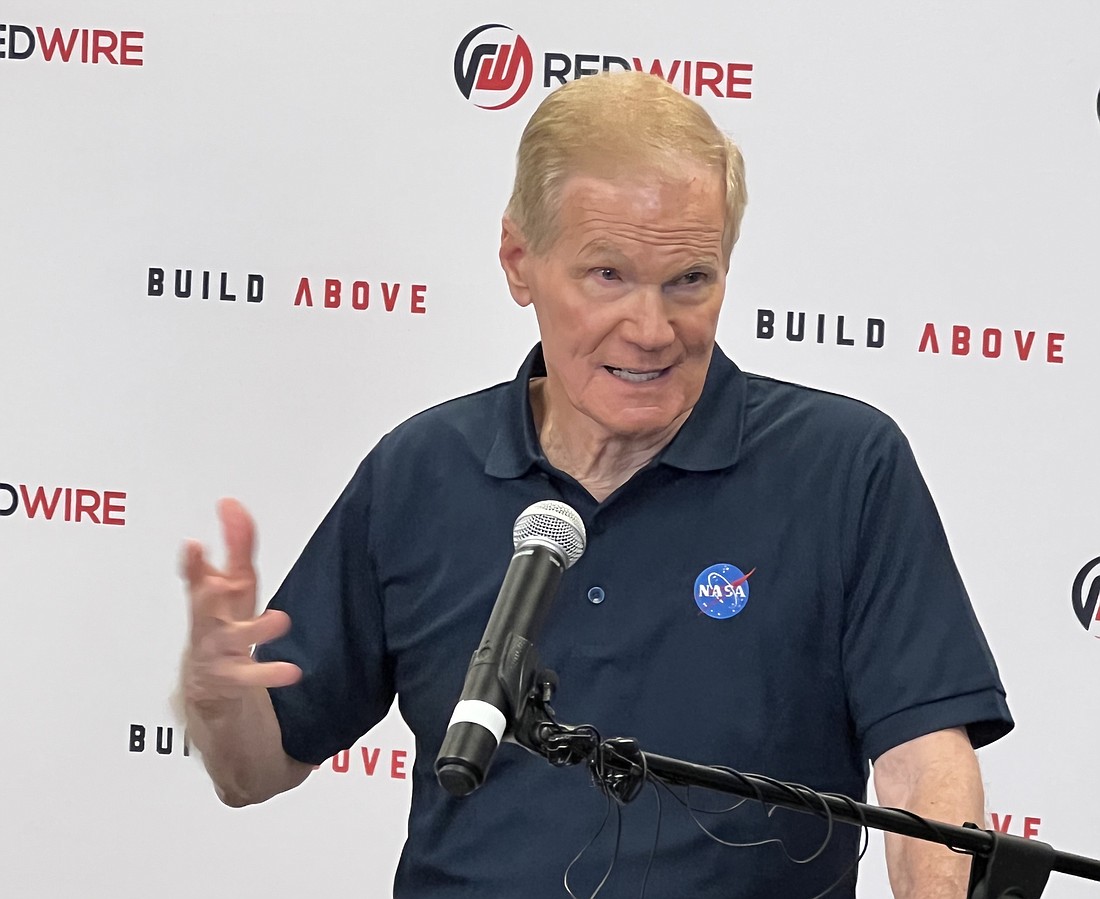
NASA Administrator Bill Nelson toured the Redwire headquarters in Jacksonville on May 10 to see progress on new technology that will allow astronauts to manufacture and service equipment in space.
Redwire is manufacturing robotics and 3D printers that will further NASA’s in-space servicing, assembly and manufacturing capabilities. It is part of a $74 million NASA-funded initiative.
Nelson, the three-term former U.S. senator from Florida, told Redwire executives and media that being able to manufacture equipment is vital to allow for extended stays on the moon and manned missions to Mars.
Payload concerns prevent large objects from being sent into space.
“There’s only so much you can get off the Earth when you have to defy the force of gravity,” said Nelson. While serving in the U.S. House of Representatives, he trained and flew one mission on the Columbia space shuttle as a payload specialist in 1986.
Astronaut John Grunsfeld, a veteran of five space flights including three missions to service the Hubble telescope, was on hand to add perspective on the importance of in-space capabilities.
By being able to create large parts with 3D printers, NASA can deploy more than 50-foot-long solar panels to operate machinery.
“It’s about power. We have to be able to generate a lot of power. Currently, we are limited by power,” he said.
In 2023 a SpaceX rocket will take the equipment into space to test its capabilities.
Nelson sponsored legislation that led to public and private partnerships to explore space. He said the bill allowed the U.S. to no longer rely on Russian rockets to take American astronauts to the International Space Station.
When the space station is decommissioned, he expects private industry to build and own the next one and that NASA and other countries would lease on it.
NASA plans a mission to the moon’s southern pole to drill into its surface to hopefully find water.
It says that if water is present on the moon, it will be able to provide hydrogen and oxygen to make rocket fuel and sustain life. It will make creating a form of cement from moon dust and other chemicals that will be used to build structures and landing pads.
“It will further expand our ability to go into space,” Nelson said.
Nelson said there is an urgency for the United States to reach the moon and discover water before another country discovers it first. He said the United States would share the discovery and its technology with the international community.
Another space problem Redwire hopes to correct is eliminating the millions of pieces of space junk orbiting Earth. Much of it is in the same orbit as the International Space Station and satellites.
Engineers demonstrated a model of a robotic arm that can grab a piece of debris and stow it on a spacecraft or be sent into a higher orbit.
Nelson blamed the problem on “human arrogance and incompetence.”
He said countries were too arrogant to think about what will happen to satellites when their lifespan expires. No plan was created to fly the junk into the Earth’s atmosphere to burn.
The incompetence he referred to were instances when both China and Russia tested weapons that blew up dead satellites into millions of tiny pieces of dangerous space debris.
Redwire operates at 8226 Philips Highway in the Baymeadows area.
“Jacksonville is in the center of space technology. We are developing technology here in Jacksonville that will be out in space,” Nelson said.
He began his statements by speaking fondly of Jacksonville. He met his wife, Grace, here more than 50 years ago.